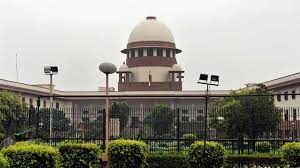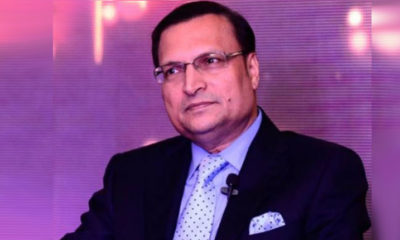Feature
Lodha panel recommendations opposed by DDCA

 New Delhi:The Delhi and Districts Cricket Association (DDCA) on Wednesday rejected a number of recommendations of the Justice R.M. Lodha committee, asserting that the existing systems and procedures are capable of ensuring transparancy in its functioning.
New Delhi:The Delhi and Districts Cricket Association (DDCA) on Wednesday rejected a number of recommendations of the Justice R.M. Lodha committee, asserting that the existing systems and procedures are capable of ensuring transparancy in its functioning.
The DDCA’s managing committee, which met here on Wednesday, refused to implement the Lodha committee’s recommendations.
Some of the recommendations that the Lodha committee had made were uniformity in constituition and functioning, putting state cricket associations under the Right to Information (RTI) act, elections and terms of officials.
“DDCA is a section eight company and ws registered under the Companies Act since 1936. In the given circumstances, it will not be possible/practical to make any adjustments for the sake of uniformity,” the DCCA said in a statement that sought to provide a point by point rebuttal of the Lodha committee recommendations.
Regarding the term limitations proposed by the committee, the statement said that the election of office bearers is through a democratic process as per the constitution of the DDCA, and any limitation on its term is not justified.
“The power to appoint electoral officer should rest with the executive committee as long as the committee does not observe any conflict of interest,” said the statement signed by DDCA vice-presidents Chetan Chauhan and C.K. Khanna.
The DDCA is also in favour of continuing with the system of proxy voting.
“The system should be continued as in many associations, there is a provision of voting in person. Associations which are incorporated under the Companies Act are statutorily bound by section 176-178 of the act. Even after appointing a person as his proxy, any member of the DDCA can come and cast his vote in person in the general body meetings/election. The proxy may be authenticated by retired judge of any court as is the practice in DDCA.”
The DDCA also differed with the Lodha panel’s call for barring officials of the respective state associations from holding posts in the Board of Control for Cricket in India (BCCI).
“It is the freedom of the concerned state association. So long as the executive committee does not feel the functioning of the DDCA is being jeopardized, there cannot be any justified reason for imposing this clause,” it said.
It also opposed the proposed restrictions on commercials during telecast of matches on the ground that it would reduce revenue.
The DDCA also criticized the committee’s proposal to reduce the number of national selectotrs to three from the existing five.
The Supreme Court had formed the Lodha committee to clean up the workings of cricket administration in the country after the Indian Premier League (IPL) was hit by a corruption and match fixing scandal that saw Chennai Super Kings and Rajasthan Royals suspended for the next two years.
The committee has submitted an extensive report to the apex court that held oout a host of recommendations that could have far reaching effects if implemented.
However, several state associations, including the Cricket Association of Bengal (CAB), have opposed several recommendations of the committee.
Entertainment
Meghalaya Reserves Legalized Gambling and Sports Betting for Tourists

The State Scores Extra High on Gaming-Friendly Industry Index
Meghalaya scored 92.85 out of 100 possible points in a Gaming Industry Index and proved to be India’s most gaming-friendly state following its recent profound legislation changes over the field allowing land-based and online gaming, including games of chance, under a licensing regime.
The index by the UK India Business Council (UKIBC) uses a scale of 0 to 100 to measure the level of legalisation on gambling and betting achieved by a state based on the scores over a set of seven different games – lottery, horse racing, betting on sports, poker, rummy, casino and fantasy sports
Starting from February last year, Meghalaya became the third state in India’s northeast to legalise gambling and betting after Sikkim and Nagaland. After consultations with the UKIBC, the state proceeded with the adoption of the Meghalaya Regulation of Gaming Act, 2021 and the nullification of the Meghalaya Prevention of Gambling Act, 1970. Subsequently in December, the Meghalaya Regulation of Gaming Rules, 2021 were notified and came into force.
All for the Tourists
The move to legalise and license various forms of offline and online betting and gambling in Meghalaya is aimed at boosting tourism and creating jobs, and altogether raising taxation revenues for the northeastern state. At the same time, the opportunities to bet and gamble legally will be reserved only for tourists and visitors.
“We came out with a Gaming Act and subsequently framed the Regulation of Gaming Rules, 2021. The government will accordingly issue licenses to operate games of skill and chance, both online and offline,” said James P. K. Sangma, Meghalaya State Law and Taxation Minister speaking in the capital city of Shillong. “But the legalized gambling and gaming will only be for tourists and not residents of Meghalaya,” he continued.
To be allowed to play, tourists and people visiting the state for work or business purposes will have to prove their non-resident status by presenting appropriate documents, in a process similar to a bank KYC (Know Your Customer) procedure.
Meghalaya Reaches Out to a Vast Market
With 140 millions of people in India estimated to bet regularly on sports, and a total of 370 million desi bettors around prominent sporting events, as per data from one of the latest reports by Esse N Videri, Meghalaya is set to reach out and take a piece of a vast market.
Estimates on the financial value of India’s sports betting market, combined across all types of offline channels and online sports and cricket predictions and betting platforms, speak about amounts between $130 and $150 billion (roughly between ₹9.7 and ₹11.5 lakh crore).
Andhra Pradesh, Telangana and Delhi are shown to deliver the highest number of bettors and Meghalaya can count on substantial tourists flow from their betting circles. The sports betting communities of Karnataka, Maharashtra, Uttar Pradesh and Haryana are also not to be underestimated.
Among the sports, cricket is most popular, registering 68 percent of the total bet count analyzed by Esse N Videri. Football takes second position with 11 percent of the bets, followed by betting on FIFA at 7 percent and on eCricket at 5 percent. The last position in the Top 5 of popular sports for betting in India is taken by tennis with 3 percent of the bet count.
Local Citizens will Still have Their Teer Betting
Meghalaya residents will still be permitted to participate in teer betting over arrow-shooting results. Teer is a traditional method of gambling, somewhat similar to a lottery draw, and held under the rules of the Meghalaya Regulation of the Game of Arrow Shooting and the Sale of Teer Tickets Act, 2018.
Teer includes bettors wagering on the number of arrows that reach the target which is placed about 50 meters away from a team of 20 archers positioned in a semicircle.
The archers shoot volleys of arrows at the target for ten minutes, and players place their bets choosing a number between 0 and 99 trying to guess the last two digits of the number of arrows that successfully pierce the target.
If, for example, the number of hits is 256, anyone who has bet on 56 wins an amount eight times bigger than their wager.


















